Search Results
Search
Filter results
Advanced Filters
Your search returned 280 Solutions
-
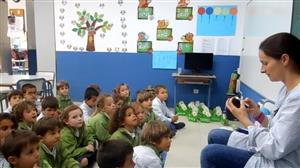
Noise-free school model inclusive of students with hearing impairments
Classrooms at Tres Olivos School are built with sound-absorbing materials and equipped with sound-level meters. The school has 98 teachers (including seven speech therapists and two deaf teachers) and 1,100 students who are educated from early childhood to high school and also in two vocational trainings.
Dales la Palabra Foundation, Tres Olivos School, Spain -
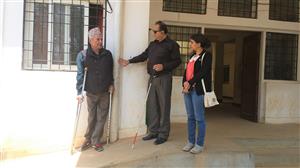
Inclusive Post-Earthquake Reconstruction
In April 2015 a strong earthquake struck Nepal, injuring and disabling around 3,000 people. "Inclusive Post-Earthquake Reconstruction: Public Building Safe and Accessible for All," initiated by ADRAD, is committed to inclusive reconstruction in the worst affected areas and reforms for more accessible construction.
Action on Disability Rights And Development-Nepal, Nepal -
The right to an inclusive apprenticeship
On the basis of a pilot apprenticeship model introduced by a parent association, the Austrian Vocational Training Act of 1969 was amended. In order to make the vocational training system more accessible to many young people and to enhance their labour market integration, prolonged or partial qualification was introduced.
Austrian Ministry of Social Affairs, Health, Care and Consumer Protection, The right to an inclusive apprenticeship, Austria -
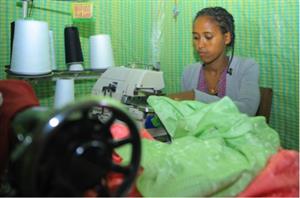
Alternative ways for successful job applications
Since 2013, ECDD has been collaborating with public vocational training colleges on the "Inclusive Skills Training and Employment Programme for and by Persons with Disabilities" to facilitate training opportunities for people with disabilities, including with intellectual disabilities. By 2016, ISTEP had assisted more than 1,500 beneficiaries.
ECDD - Ethiopian Center for Disability and Development, Ethiopia -
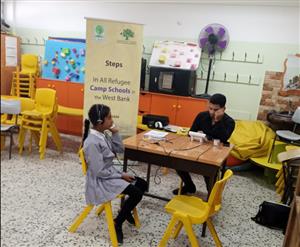
Providing hearing and seeing aids paired with inclusive education in refugee camps
PCCDS, Hebron: Improves educational outcomes for students with hearing and visual disabilities. Provided hearing aids and glasses, increasing completion rates from 27% to 59%.
Support programme for young people with visual or hearing disabilities, Palestine -
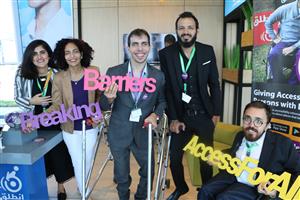
Using analytic tools to make workplaces more accessible and jobs more inclusive
Helm is working with companies in Egypt to provide both job analysis for recruitment and accessibility consultancy services, including accessibility audits. By 2020, Helm had completed a total of 1,063 accessibility audits in a number of sectors and helped recruit 100 people with disabilities.
Helm, Workplace Inclusive Solutions, Egypt -
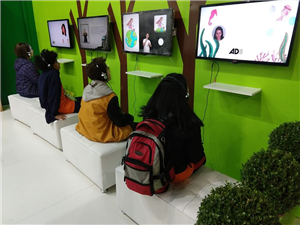
Audio-visual books in multiple accessible formats
"Livros em múltiplos formatos acessíveis" is an audio-visual software that converts books into a range of accessible formats, including Brazilian sign language, in a single version. Complementing this, the NGO Mais Diferenças from Brazil offers training and organizes inclusive readings for people with and without disabilities.
Mais Diferencas - Inclusive Education and Culture, Books in multiple accessible formats, Brazil -
Inclusive Education for Cambodian children who are blind or deaf
The project offers extra classes for children with visual or hearing impairments to enable them to attend mainstream schools. During the extra lessons students are prepared to follow regular classes by making use of special learning materials in Braille and sign language. The project also created the Khmer Braille and Khmer Sign Language.
Krousar Thmey Foundation, Cambodia -
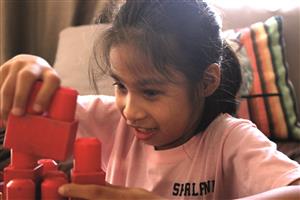
A multifaceted approach towards inclusive pre-primary and primary schools
KASALI (which means “no one is left behind” in Filipino) uses a range of methods such as establishing model schools, training teachers and educating parents. Moreover, the organization is conducting advocacy and policy discussions with the government. As a result, 739 children with disabilities have enrolled in school since 2014.
Save the Children Philippines, KASALI – No one left behind, Philippines -
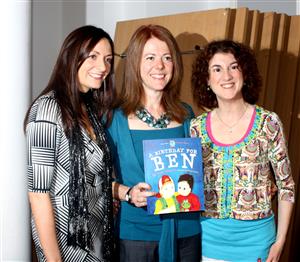
Creating a more accessible world for deaf children in Ireland
Sound Advice supports Inclusive Education for deaf children while empowering parents to develop their child’s full potential. The measures include public relations, training and counselling, but also reading promotion and mentoring. One success was that newborns in Ireland are entitled to digital hearing aids.
Sound Advice, Ireland